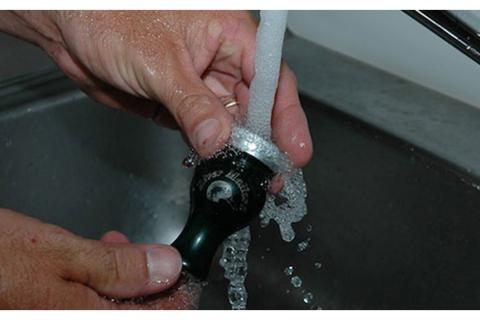
Maintain Your Calls To Ensure They Sound Like New
As waterfowl hunters, there are topics of maintenance we tend to on a regular basis. We clean our shotguns, post-hunt, with almost a religious fervor. Boats are washed, decoys are organized and stored, and blind bags emptied, checked, double-checked, and repacked. Retrievers, too, are fed, rubbed down, and, if they are anything like ours, set to sleep on a blanket in front of the wood-burner. After all, they have certainly earned the right, eh?

But what about those calls hanging from your neck? When was the last time you gave thought to cleaning your duck or goose call? This season?
Last season? Never? In truth, there is a good chance that apart from periodically changing out the cork, your duck call will not require any major maintenance. To my way of thinking, scuffs and scratches are a sign of character; that the call is actually used for calling ducks and not simply as part of a costume.
What if the call should need a cleaning midseason? And what to do with it once the season is over? Rinsing a call to get rid of errant weed seeds or bits of Levi Garrett is as elemental a process as is changing a cork. Separate the insert (the half with reed, cork, and tone board) from the barrel, and rinse both under cool running water. Do not use hot water to rinse the call. Some tap water is actually hot enough to warp or change the physical nature the mylar reed. Once the call is clean, set the insert and the barrel on a towel to air-dry. If you are in a hurry, use lung power to blow the excess water from the components. A hot hair dryer? A bad idea.

kits of cork and reeds making replacing
these components easy.
End-of-the-season maintenance and storage are all that remain. Following a thorough rinsing inside and out, and complete drying, the two parts of the call can be reassembled.
Acrylic or polycarbonate calls, along with the decorative brass bands found on some models, can be polished using any of several commercial compounds. Wooden calls should be checked and double-checked for dryness before prolonged storage. Any carnuba-type wax can be used to polish a finished wooden call. A couple coats not only shine it up, but help protect the wood and finish, too.
As for storage, everyone is different. Four-time Tennessee state duck calling champion, Bill Cooksey said: In a perfect world, you wouldd clean the calls up well, and then store them on a shelf or somewhere in the house where the dust will be minimal, the kids cannot go to sticking pencils in them, or the dogs cannot chew them up.
My calls get cleaned, go back on the lanyard, and hang in the dry, dehumidified basement until the following September. Perfect? Perhaps not, but I know that come the opener, those same calls will sound as they did the day I took them out of the package. Now, if only I could play them like Cooksey.
- 1934 views

